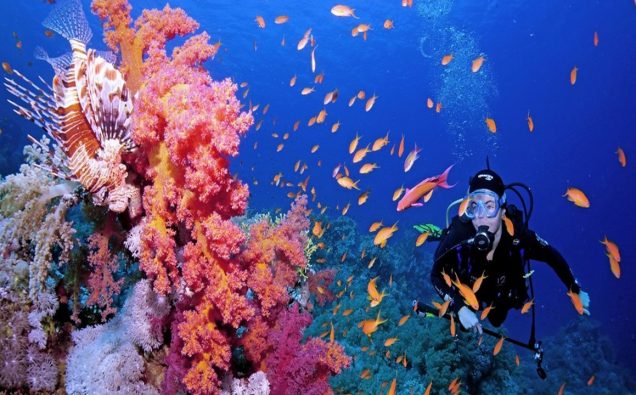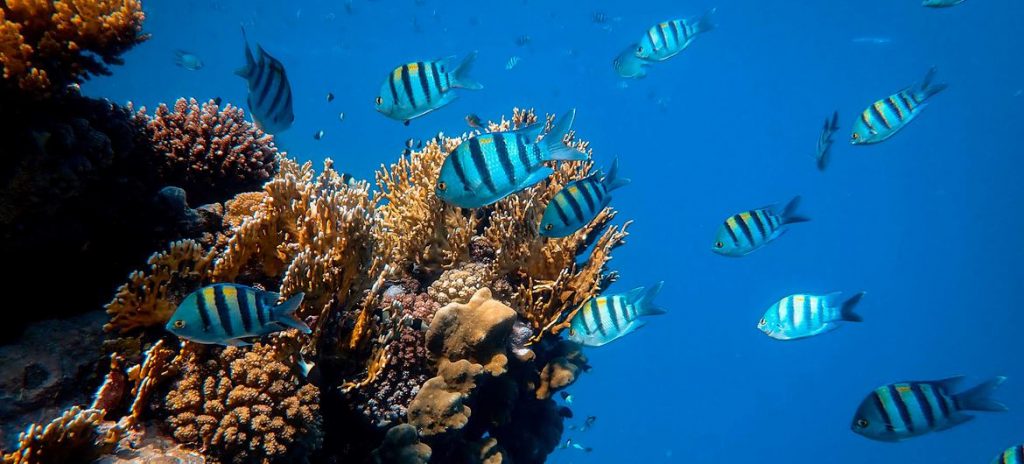
A UN Conference this week elicited commitment from the international community to address pollution in oceans through scientific policies and innovative actions.
Held in Lisbon, the five-day Ocean Conference was attended by more than 150 countries.
The participants unanimously adopted the Lisbon Declaration, a suite of science-based and innovative actions while also taking into account the capacity challenges facing developing countries, particularly the Small Island Developing States and Least Developing Countries that are at the frontline of the devastating impacts of the ocean emergency.
The agreement reached at the moot, together with bold commitments from all sectors of society — youth, civil society, businesses, and the scientific community — demonstrate the centrality of a safe, healthy and productive ocean to food security, livelihoods, and a safe planet, the United Nations said.
Under-Secretary-General for Legal Affairs and United Nations Legal Counsel Miguel de Serpa Soares called the conference an enormous success.

The Red Sea’s reef is one of the longest continuous living reefs in the world
“It has given us the opportunity to highlight critical issues and generate new ideas and commitments. But it has also shed light on the work that remains, and the need to scale this up and raise ambition for the recovery of our ocean.”
More than 6,000 participants, including 24 Heads of State and Government, and over 2,000 representatives of civil society attended the event.
The year 2022 has seen several milestone agreements on stepping up the much-needed ocean action.
For example, the UN Environment Assembly in March consensually agreed to begin negotiations for a binding global treaty to end plastic pollution. While last month, the World Trade Organization succeeded in reaching general consensus on banning harmful fisheries subsidies.
Besides, this year’s Intergovernmental Conference on Marine Biodiversity of Areas Beyond National Jurisdiction could also lead to strengthening the governance of the high seas.
Later this year, the Conference of the Parties to the Convention on Biological Diversity (COP 15) is an opportunity to achieve a new target to protect 30 percent of the planet’s lands and seas by 2030. UNFCCC COP 27, to take place in November, will see a focus on climate adaptation measures and financing required to build ocean resilience.
All these agreements and initiatives look great as far as the world’s commitment to restoring clean oceans. But the real test lies in the implementation of the pledges to meet the global emergency of the oceans, as noted by Pakistan’s Ambassador to the UN, Munir Akram.
The challenges facing the preservation of oceans range from rising sea levels and marine pollution to ocean acidification and habitat loss. The planet’s largest biodiversity reservoir is in jeopardy, threatening to derail progress on Sustainable Development Goal 14, the key roadmap for global action on life below water.
Additionally, the cumulative human impacts on the ocean — the lungs of our planet — if not curtailed, will exacerbate the climate emergency, and hinder the aspirations of the Paris Agreement.
In the last couple of years, the ocean-based economies have also been deeply affected by the COVID-19 pandemic and there were many setbacks in ocean management, monitoring, and science.
But restoring the health of the oceans can be part of the solution, experts said, adding that resilient and healthy oceans are the foundations of climate regulation and sustainable development, with the potential to produce food and energy for billions.













